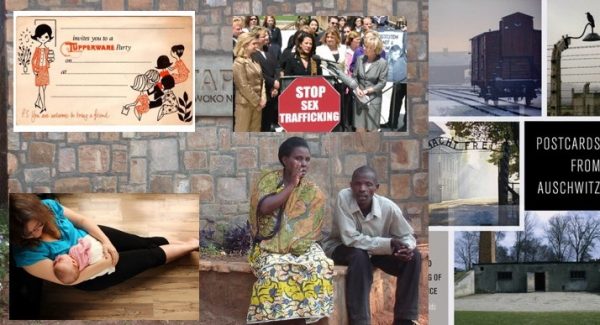
Hello sociology friends! This week we’ve got social science research on the relationship between housing and health, the gender gap in teaching evaluations, and how the private bail industry profits from women of color.
There’s Research on That!:
“Housing Security and Health,” by Allison Nobles. One important and under-appreciated aspect of housing insecurity involves health, and sociologists have shown that the relationships between health and housing are more complicated than you might imagine.
Discoveries:
“Perfection, but not Brilliance in Teaching Evaluations,” by Jean Marie Maier. New research in American Sociological Review finds that the number of points in a rating scale might reduce the size of gender gaps.
Clippings:
“Politics, Protests and Activist Memes,” by Allison J. Steinke. VICE talks with James M. Jasper about activist memes.
“How Private Bail Profits from Women of Color,” by Caity Curry. The Appeal talks with Josh Page about how the private bail industry excessively profits from low-income women and women of color.
From Our Partners:
Contexts:
“Disrupting the Racial Wealth Gap,” by Melvin L. Oliver and Thomas M. Shapiro.
Sociological Images:
“The Stakes of Steak,” by Allison Nobles.
Council on Contemporary Families:
“Even Gender Inequality is Unequal,” by Virginia Rutter.
Social Studies MN:
“The Ins and Outs of the IMF,” by Neeraj Rajasekar.






 Welcome back! This week on TSP we’ve got social science research on intimate partner violence, male victims of sexual assault, and how lynchings matter for current punitive attitudes. We’ve also got sociological takes on unplanned pregnancies and civil justice.
Welcome back! This week on TSP we’ve got social science research on intimate partner violence, male victims of sexual assault, and how lynchings matter for current punitive attitudes. We’ve also got sociological takes on unplanned pregnancies and civil justice. Hello sociology-fans! This week we’ve got new research on how gender matters for beer ratings, why senior citizens are spending more to help their grandchildren, and how The Great British Baking Show can help you give effective feedback.
Hello sociology-fans! This week we’ve got new research on how gender matters for beer ratings, why senior citizens are spending more to help their grandchildren, and how The Great British Baking Show can help you give effective feedback. Welcome back! This week we’ve got sociological takes on the meaning of prison tattoos, how gender matters for regretted hookups, and masculinity in a recent Gillette ad. To wrap up Black History Month, we reflect on three Black women who contributed to sociology in its early days.
Welcome back! This week we’ve got sociological takes on the meaning of prison tattoos, how gender matters for regretted hookups, and masculinity in a recent Gillette ad. To wrap up Black History Month, we reflect on three Black women who contributed to sociology in its early days. Welcome back! This week we’ve got new takes on love behind bars, W.E.B. Dubois, schools’ role in inequality, and accusations against R. Kelly.
Welcome back! This week we’ve got new takes on love behind bars, W.E.B. Dubois, schools’ role in inequality, and accusations against R. Kelly.